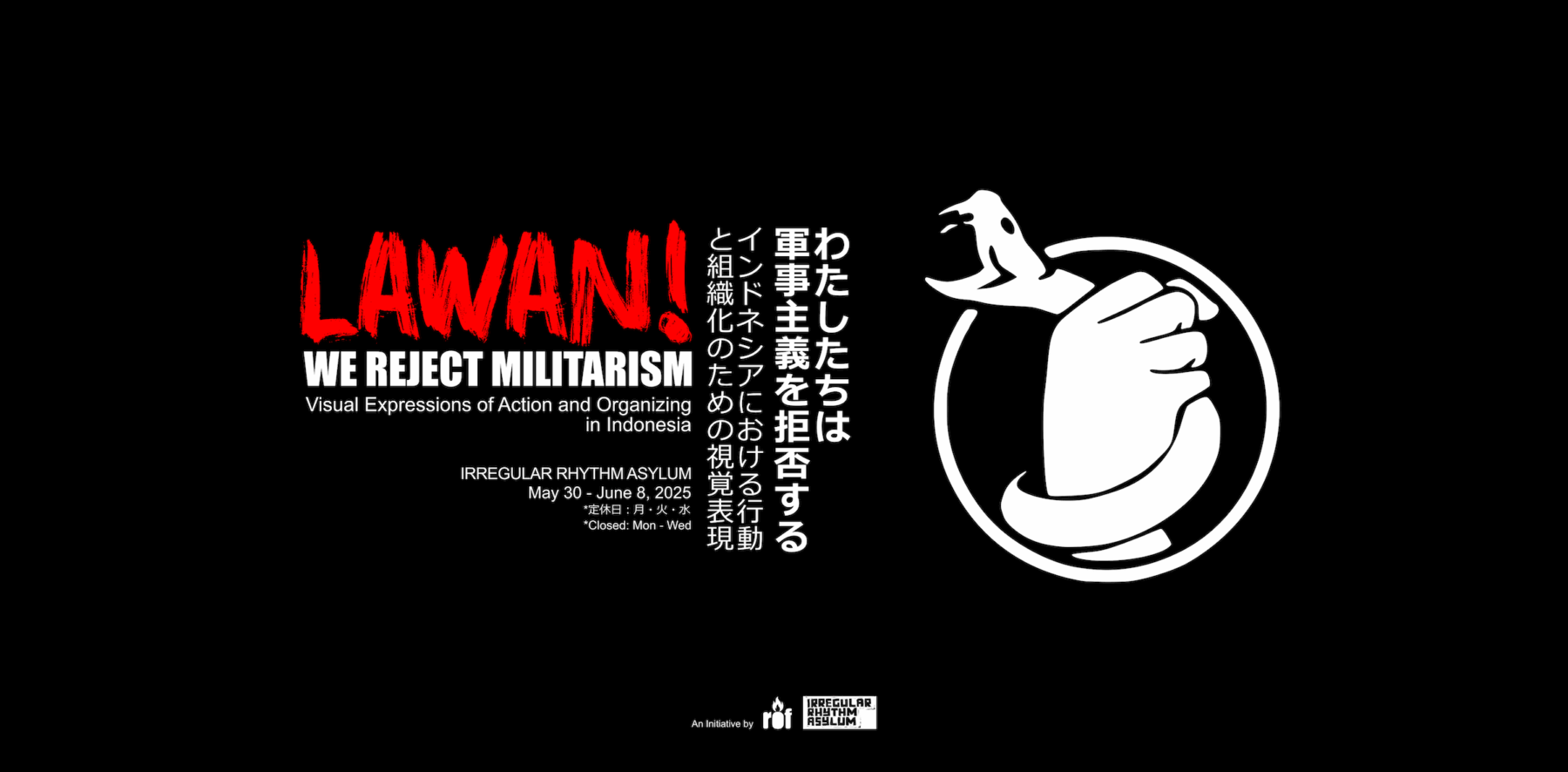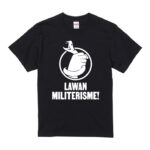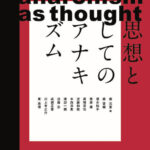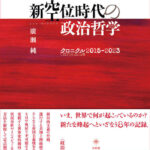
期間:2025年5月30日(金)〜 6月8日(日)
開館時間:13:00-19:00
閉館日:6月2日〜6月4日
会場:IRREGULAR RHYTHM ASYLUM (新宿区新宿1-30-12-302 *エレベーター無)
入場無料: カンパを歓迎します。
会期中イベント
5月31日(土)18:30開始
オープニングパーティ
展示解説と交流(インドネシア風軽食あり)
6月7日(土)17:30-20:00
パネルディスカッション
「軍事主義を拒否する−共通する経験、抵抗、連帯」
主催:Ring of Fire | 協力: IRREGULAR RHYTHM ASYLUM
X | @ringoffire_o
note | ring_of_fire
企画趣旨
本年3月20日、インドネシア国会は、現役軍人が兼任できる政府機関を拡大する改正インドネシア国軍法を可決した。国軍の権限拡大による民主主義の後退が危惧され、「軍人は兵舎に戻れ」「国軍の(軍事と民事)二重機能撤廃」などをスローガンに、インドネシア全土60都市以上で、国軍法拒否(Tolak UU TNI)の激しい抗議行動が展開した。
争点の国軍法は、1998年まで続いたスハルト軍事独裁政権の崩壊後、民主化移行期に軍の権限を抑える目的で2004年に制定された。法改正を後押ししたプラボウォ大統領は、スハルト体制下の陸軍高官で、軍による人権侵害事件への関与がかねてから指摘されてきた。現政権による今回の法改正は、権威主義的統治への逆行、あるいは新たな軍民独裁体制の始まりともみなされ、強い警鐘が鳴らされている。
3月の国軍法拒否運動では、国際連帯の緊急呼びかけも発せられた。こうした呼びかけに応答して、本企画が出発した。国軍法拒否運動を注視すると、運動のうねりの中で、訴求力の高いポスターや壁画や動画が数多く制作され、ストリートとデジタル空間で大量に拡散されていたことに気がつく。そこで本企画は、インドネシアのアクティビストたちの協力を得て収集した、国軍法拒否運動から生まれた視覚表現を、ポスター、写真、スライドで展示する。展示を通じて、インドネシアの国軍法拒否運動のメッセージ、運動の動員・組織化と視覚表現との関係が示されることになるだろう。さらには、軍事主義と権威主義に抵抗し、ラディカルな地殻変動を求める人々のつながりが促進されることを、本展企画チームは意図している。
この企画を主催するのは、環太平洋にルーツを持ち、反権威と反帝国を志向する日本在住の友人たちRing of Fireである。わたしたちRing of Fireは、インドネシアの人々の「軍事主義を拒否する」という要求を、現在のインドネシアにおける軍による市民領域介入と軍民複合寡頭政治体制の問題として認識すると同時に、その文脈を考える。「軍事主義を拒否する」という要求は、スハルト体制下の軍による人権侵害の記憶、スハルト体制を米国とともに支援し、経済的利益を享受してきた日本政府・経済界の帝国的ポジション、そして東アジア・東南アジアの民衆が共有する軍事独裁政権・寡頭政治に対するたたかいの経験を想起することをも、促しているはずだと。「わたしたちは軍事主義を拒否する」という展覧会の名称には、アジア太平洋地域の歴史的・地政学的文脈を共有した国際連帯を企図する、Ring of Fireの問題意識が反映されている。
本企画のメインタイトルであるLAWAN!は、インドネシア語で「たたかい」を意味する。LAWAN!は、インドネシアの運動現場において、必ずと言っても過言ではないほど耳にするシュプレヒコールで、スハルト体制に詩の言葉で対峙し、権力により拉致され行方不明となる(強制失踪)詩人で活動家のウィジ・トゥクルが残した一節「ただ一つの言葉があるのみ−たたかうぞ!」へのオマージュでもある。敵に挑む戦闘的精神を鼓舞する言葉LAWAN!を冠することで、展示作品群の根っこにある民衆精神が、より鮮明に鑑賞者に響くことを願っている。
LAWAN!
We Reject Militarism
Visual Expressions of action and organizing in Indonesia
When: 30 May 2025 – 8 June 2025
Opening hours: 13:00-19:00
Closing days: 2 June – 4 June
Where: Irregular Rhythm Asylum (1-30-12-302 Shinjuku, Shinjuku-ku, Tokyo. *walk-up building)
Admission free: We kindly invite you to contribute to our project through donations.
Events
31 May 18:30
Gallery talk and opening party
Refreshment will be served
7 June 17:30-20:00
Panel discussion
Rejecting Militarism: Shared Experience, Resistance, and Solidarity
Organised by Ring of Fire
X | @ringoffire_o
note | ring_of_fire
About:
On March 20th of this year the Indonesia’s parliament passed the revised Indonesian Military (TNI) Law that will allow active military officers to serve in more civilian government posts without having to resign from their military positions.
Concerned that the expansion of the military’s power will result to a setback in democracy, the Reject Military Law (Tolak UU TNI) protests took place from more than 60 cities across Indonesia, with slogans such as “Soldiers should return to their barracks” and “Abolish the military’s dual (military and civilian) functions.”
The Indonesian Military Law was enacted in 2004 with the aim of ensuring the neutrality of the military in politics and governance. The 2004 Law signifies a milestone of democratization in Indonesia after the collapse of the Suharto military dictatorship in 1998. The incumbent President Prabowo Subianto, who pushed for the controversial amendment of the Military Law, was a former army general under the Suharto regime and has long been accused of involving in gross human rights violations. The revised Military Law initiated by the current administration is considered as an alarming backslide to the era of military dictatorship or the beginning of a Neo Civil-Military dictatorship.
In the midst of the Reject Military Law protests there was an urgent call for international solidarity that became a starting point of this project. And by paying attention to the Reject Military Law protests, we have noticed that as the protest unfolds numerous compelling posters, murals, and videos were produced and massively disseminated on the streets and digital space. Therefore this project will exhibit these compelling visual expressions produced in the Reject Military Law protests in the form of posters, photographs, and image slides collected in collaboration with Indonesian activists.
Through the exhibition, the organizer and curatorial team also aim to convey the message of the Indonesia’s Reject Military Law protests as well as their aspiration in organizing the movement for change. Furthermore, we hope that our project will facilitate intersectional connections among people who dare to resist militarism and authoritarian rule and seeking for a radical change.
This project is organized by Ring of Fire, a Japan-based group of friends with shared roots in the Asia-Pacific region and a commitment to anti-authoritarian and anti-imperialist values. We, Ring of Fire, recognize the Indonesian people’s call to “reject militarism” as an urgent response to the growing threat of military dominance over civilian authority and the entrenchment of a military-civilian oligarchy in Indonesia today. At the same time, in this project we also consider weaving its broader context: the legacy of human rights violations committed by the military under the Suharto regime; the imperial role of the Japanese state and business sector, which—along with other imperialist powers, including the United States—supported and profited from the Suharto dictatorship; and the shared experience of people across East and Southeast Asia in resisting military dictatorships and oligarchic rule. These interconnected histories form the basis for the exhibition’s subtitle, We Reject Militarism, as we envision international solidarity rooted in historically and geopolitically shared struggles for justice and freedom.
The main title of this exhibition LAWAN! means “fight” in Indonesian. LAWAN! is a rallying cry commonly heard in almost every protests in Indonesia and is also an homage to the line “There is only one word – fight!” written by a poet and activist Wiji Thukul who confronted the Suharto regime with poetry and was eventually abducted and disappeared (enforced disappearance) by the regime. And by choosing the word LAWAN! as an inspiration to the Indonesian people’s militancy in challenging authoritarianism, we Ring of Fire are hoping that the people’s aspiration behind the visual expressions on the wall will vividly resonate with the viewers.






